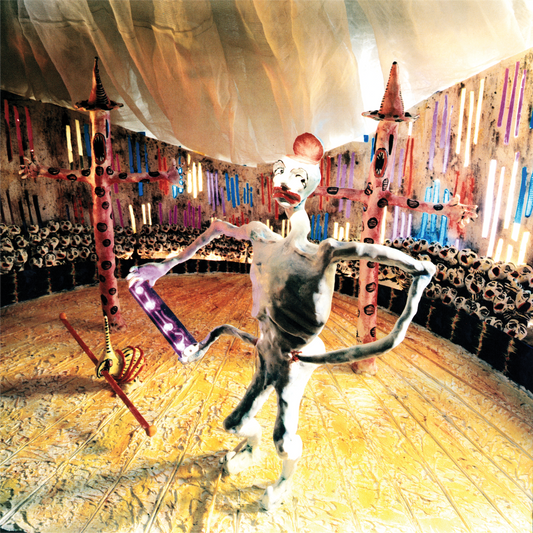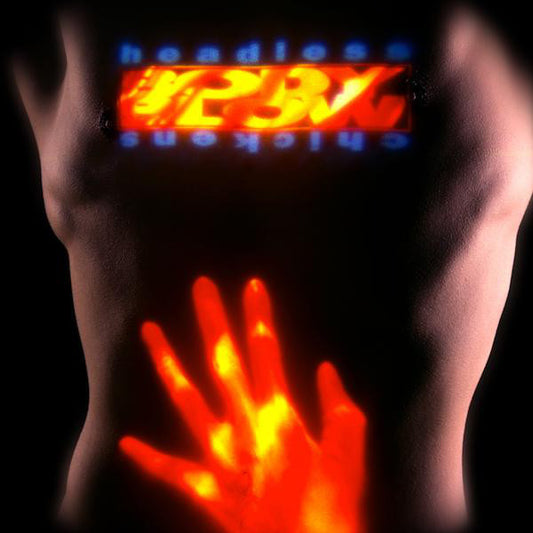They were an “alternative, underground band using hi-tech instruments in a low tech way”, controversial winners of the Rheineck Rock Award, the Flying Nun act that came closest to dance music (giving the label its only number one) and, throughout, a vehicle for the singular vision and dark humour of Chris Matthews.
In the beginning – the early 80s - Matthews and Johnny Pierce were half of the uncompromising attack of Children’s Hour (along with Grant Fell and Bevan Sweeny) and occasional contributors to the Jefferies brothers project, This Kind of Punishment.
In 1985 the pair roped in the more electronically inclined Michael Lawry to form the International Headless Chickens for a one-off performance at the ‘Nitpickers Picnic’. Shortening their name, they released a self titled EP in mid-1986. Their use of samplers, synthesisers and drum machines combined with a claustrophobic sound and Chris Matthews’ dark, often bleak, lyrics quickly set them apart from most of their contemporaries.
In August 1986, Johnny Pierce tragically took his own life and the band stalled – but Matthews and Lawry picked up the pieces again, adding Children’s Hour band mate Grant Fell on bass and flamboyant former Bird Nest Roy Rupert E Taylor as a vocalist.
In December 1987 the Headless Chickens won the second Rheineck Rock award and hilarity ensued. The inaugural winners, South Auckland funksters Ardijah, had – to the satisfaction of the “industry” – parlayed their win into radio play and chart hits. Awarding the prize to such an unrepentantly alternative outfit created an outcry best summed up in a Metro article alleging a “severe lack of judgement” and bizarrely suggesting that, as an alternative band, the Chickens played “music which you can’t actually listen to”.
Somehow, the firmament held together and the band recorded their debut album. The Children’s Hour reunion was completed with Bevan Sweeney brought in to add a more human element to the rhythms.
Released in mid-1988, ‘Stunt Clown’ underlined the gaping chasm between established industry and alternative scene – nothing here would follow Ardijah to Top 40 radio rotates; and it amplified unresolved tensions on the other side of the tracks – where such heavy use of emulators and drum programmes sat badly with some.
On its own terms, ‘Stunt Clown’ was a stunning achievement with a huge sweep encompassing everything from the dark driving guitars and rhythms of ‘Expecting To Fly’, the self referential ‘Do The Headless Chicken’ and the snarling ‘Donka’ to the lighter touch of ‘Soul Catcher’ and the tenderness of ‘Fish Song’ – with cello, violin and piano accordion thrown in for good measure. The critics were impressed; the detractors probably still didn’t understood.




